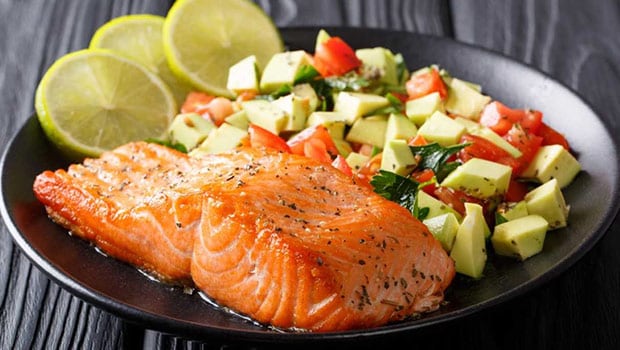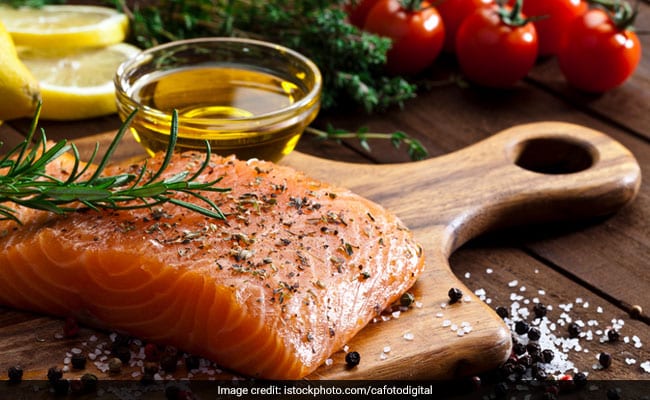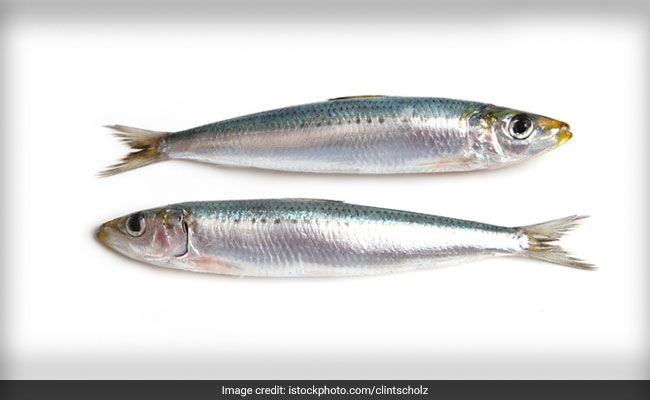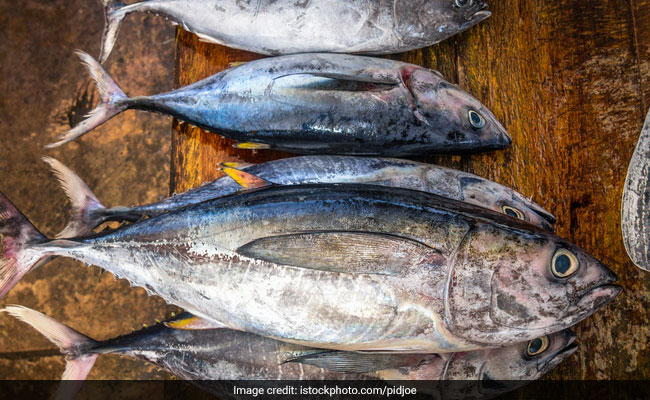Oily fish is high in omega-3 fatty acids, a kind of good fat for the human body. These are by far the most healthy varieties of oily fish.

Oily fish are high in protein and help in weight loss
HIGHLIGHTS
- Oily fish can be included in a healthy balanced diet
- Experts recommend eating oily fish at least twice a week
- Oily fish help in reducing risk of heart disease
Oily fish or fish rich in fatty acids is considered to be a high-protein, healthy food which can be included in a well-balanced diet. Oily fish is high in omega-3 fatty acids, a kind of good fat for the human body. Foods rich in omega-3 fatty acids are important for our brain and heart health. They help in reducing inflammation and risk of heart diseases. According to the American Heart Association, fatty fish or fish rich in omega-3 fatty acids should be consumed at least twice a week.
Following are some of the best varieties of oily fish:
1. Salmon
Salmon is rich in omega-3 fatty acids and is considered great to be included in your diet. It is a great source of protein and is also high in essential B Vitamins. Salmon can be included in a weight loss diet as well.

Salmon is rich in omega-3 fatty acids
Photo Credit: iStock
2. Tilapia fish
Tilapia fish is rich in proteins, selenium, omega-3 fatty acids, phosphorus, potassium, Vitamin B 12, niacin, Vitamin B 6 and pantothenic acid. The fish is considered to be beneficial for weight loss and is known to give a boost to overall metabolism. It helps in maintaining strong bones and prevents risk of arthritis. It is also known to reduce signs of ageing and strengthens immune system.
Also read: 6 Definite Health Benefits Of Eating Fish - Must Eat Twice A Week At Least
3. Herring
Herring is same as sardines. Herring contains omega-3 fatty acids, Vitamin D and selenium. But herring should be consumed in limited quantities as it contains high amounts of sodium.
4. Mackerel
Mackerel is a kind of oily fish which is power packed with healthy fats. Consuming mackerel can help in controlling blood pressure and is also good for heart health. Omega-3 fatty acids, Selenium, B Vitamins and Vitamin D are present in mackerel.
5. Cod
Cod is a flaky white fish which is a great source of vitamin B 12. It is also rich in protein, phosphorus and selenium. Other minerals in cod include potassium, omega-3 fatty acids, choline, niacin and Vitamin B6.
Also read: Of All The Varieties Of Fish, These 5 Are The Healthiest!
6. Sardines
Sardines is also a kind of oily fish which has many vitamins. It is rich in Vitamin D and helps in controlling blood sugar levels. Sardines can be effectively incorporated in weight loss diet as it helps in feeling full for longer.

Sardines help in controlling blood sugar levels
Photo Credit: iStock
7. Tuna
Tuna is a kind of oily fish which helps in controlling cholesterol levels in the body. Some health benefits of tuna include keeping blood pressure under control, promoting weight loss, improving health of the skin, preventing risk of cancer and providing energy.

Tuna helps in controlling cholesterol levels
Photo Credit: iStock
8. Mahi mahi
Mahi mahi is a kind of oily fish which is rich in omega-3 fatty acids. It is high in protein and is known to reduce risk of heart disease, fight inflammation and maintain healthy functioning of cells.
Also read: These Varieties Of Fish Have The Highest Levels Of Mercury
9. Sea bass fish
Sea bass fish is low in calories and high in protein and essential omega-3 fatty acids. It comprises Vitamin B 12 and Vitamin B 6. However, this fish contains slight amounts of mercury and should be consumed in limited quantities by pregnant women and children.
Disclaimer: This content including advice provides generic information only. It is in no way a substitute for qualified medical opinion. Always consult a specialist or your own doctor for more information. NDTV does not claim responsibility for this information.
DoctorNDTV is the one stop site for all your health needs providing the most credible health information, health news and tips with expert advice on healthy living, diet plans, informative videos etc. You can get the most relevant and accurate info you need about health problems like diabetes, cancer, pregnancy, HIV and AIDS, weight loss and many other lifestyle diseases. We have a panel of over 350 experts who help us develop content by giving their valuable inputs and bringing to us the latest in the world of healthcare.














